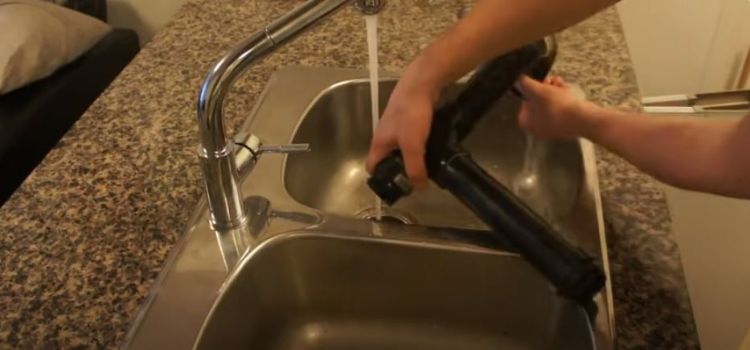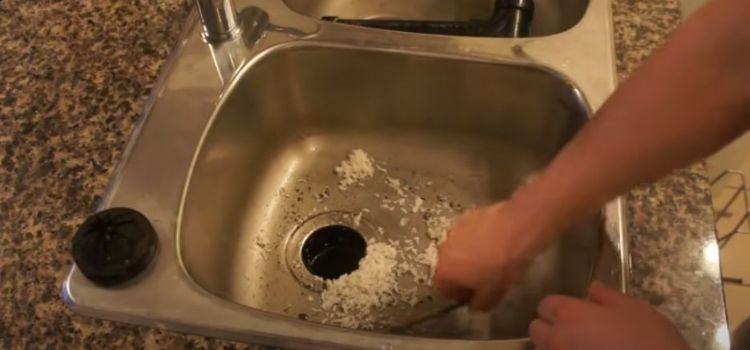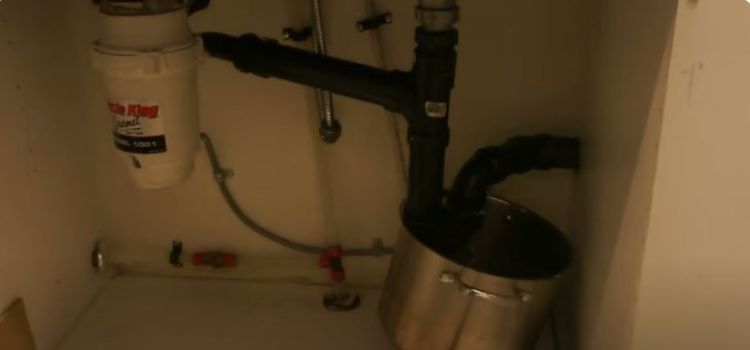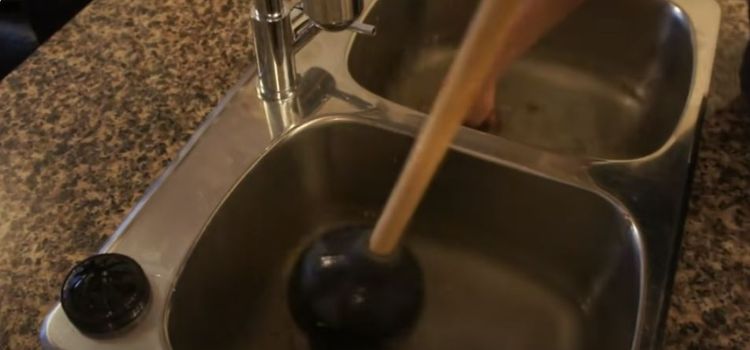
Introdution
You’re not alone if you are constantly dealing with a cloggyou’rechen sink. Many homeowners face this frustrating issue regularly. In this blog post, we will explore the common reasons why kitchen sinks clog and provide practical solutions to prevent it from happening in the future.
By understanding the underlying causes of clogged kitchen sinks, you can take proactive steps to keep your sink running smoothly. Let’sdive into the reasons behind this common household problem and how to address it effectively.
Common Causes of Kitchen Sink Clogs

There are several common reasons why kitchen sinks clog. One of the main culprits is food particles and grease washing down the drain. These materials have the potential to accumulate and clog pipes over time. Another common cause is the accumulation of debris, such as coffee grounds, soap scum, and hair, which can also lead to clogs. Additionally, improper garbage disposal or not using one at all can contribute to sink blockages.
Tips for Preventing Kitchen Sink Clogs

To prevent your kitchen sink from clogging, you can take a few simple steps. First, be mindful of what you are washing down the drain.Grease and oil may harden and clog pipes, so don’t dump them down the drain.
Use a strainer or screen over the drain to catch food particles and debris before they go down the pipe. Running hot water down the sink after each use is also essential to help clear any buildup. Regularly clean your garbage disposal to prevent it from getting clogged with food scraps.
Lastly, consider using a natural enzyme cleaner to break down any buildup in the pipes. By taking these precautions, you can keep your kitchen sink running smoothly and avoid the frustration of dealing with clogs.
DIY Methods for Unclogging a Kitchen Sink

Identify the cause: Before unclogging your kitchen sink, you need to figure out what’s causing the clog. It could be food particles, grease, or even foreign objects stuck in the pipes. Once you know the cause, you can better determine the best method for unclogging it.
Use a plunger: A plunger is a simple and effective tool for unclogging a kitchen sink. Fill the sink with enough water to cover the plunger, and then place the plunger over the drain and pump it up and down several times. By doing so, the obstruction may be removed and the water flow restored.
Try a homemade solution: You can create a DIY solution using baking soda and vinegar.First, pour one cup vinegar down the drain, followed by one cup baking soda.After letting it rest for a few minutes, use hot water to clear the drain.
Use a plumbing snake: If the clog is stubborn, you may need to use a plumbing snake to remove it physically. Insert the snake into the drain and twist it to hook onto the clog, then pull it out.
Prevent future clogs: Once you’ve unclogged your kitchen sink, take steps to prevent future clogs. Avoid pouring grease down the drain, use a drain strainer to catch food particles, and regularly flush the drain with hot water to keep it clear.
When to Call a Professional Plumber
If you’ve tried the DIY methods and your kitchen sink keeps clogging, it may be time to call a professional plumber. They have the tools and expertise to effectively and safely clear out stubborn clogs.
Additionally, you notice signs of a more severe issue, such as slow drainage in multiple sinks or sewage odors from the drain. In that case, it is best to contact a plumber immediately to prevent further damage to your plumbing system.
A professional can assess the situation and provide a long-term solution to keep your kitchen sink running smoothly.
Maintenance Tips for Keeping Your Kitchen Sink Clear
Avoid putting food scraps down the drain: One common reason for kitchen sink clogs is food scraps getting stuck in the pipes. To prevent this, make sure to scrape off food scraps into the trash before washing dishes or using the sink.
Use a drain strainer: Installing a drain can help catch food particles and prevent them from going down the drain. This can significantly reduce the risk of clogs and keep your kitchen sink clear.
Regularly clean the drain: To prevent buildup and clogs, it’s essential to clean the drain regularly. You can use baking soda, vinegar, or a commercial drain cleaner to clear the pipes.
Avoid pouring grease down the drain: Grease can solidify in the pipes and cause clogs. Grease should be gathered in a container and thrown out in the trash rather than down the drain.
Run hot water after use: Running hot water down the drain after each use can help wash away any remaining debris and prevent buildup in the pipes.
Professional Maintenance: Consider hiring an experienced plumber to regularly inspect and clean your kitchen sink pipes to prevent clogs and other issues. This can help identify any potential problems before they become significant clogs.
FAQs
What is the best product to unclog a drain?
Many products are available to unclog a drain, but a chemical drain cleaner is one of the most effective and commonly used. These products are designed to break down and dissolve the blockage in your pipes, allowing water to flow freely again.
However, it’s essential to use these products carefully and according to the instructions to avoid damaging your pipes or causing harm to yourself. Alternatively, you can use a plumbing snake or call a professional plumber for more stubborn clogs.
How do you unblock a sink naturally?
One natural way to unblock a sink is by pouring a mixture of equal parts baking soda and vinegar down the drain. After a few minutes of sitting, flush it with hot water. This can help break up any clogs and clear the blockage.
Why is the kitchen sink backing up?
The kitchen sink may be backing up due to a clog in the pipes, a problem with the garbage disposal, or issues with the plumbing system. It is important to address the issue promptly to prevent further damage and ensure proper sink functioning.
Final Thoughts
In conclusion, there are several reasons why your kitchen sink may keep clogging, including food particles, grease buildup, and foreign objects. To prevent clogs, cleaning your sink regularly and avoiding putting large food scraps or grease down the drain is essential. Preventing any material from falling is also possible with the installation of a drain strainer. If clogs persist, it may indicate a more significant issue with your plumbing that requires professional attention.
